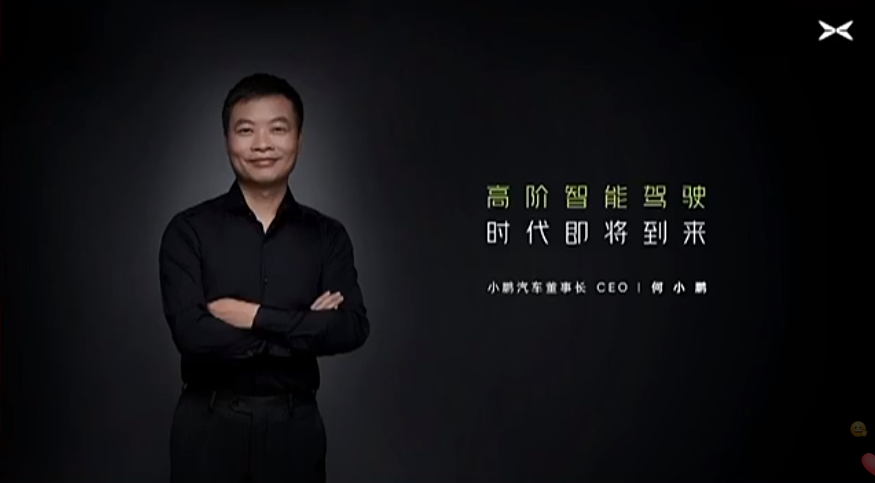Intelligent Driving Assistance Will Enter the High-Level Stage in the Second Half of this Year, and May Enter the Unmanned Driving Stage in 2026
On March 26, at the 2022 Hundred People Forum, He XPeng, the chairman of XPeng Motors, raised the “flag” that “the speed of this transformation will be faster than most people imagine, and it will be much faster.”
“We believe that from 2023, a new era of human-machine co-driving for (high-level intelligent assisted driving) will begin. Based on this, XPeng Motors will transition to unmanned driving from 2026,” He XPeng said in his speech. “I also call on the industry to establish more policies and regulations as soon as possible to prepare for the arrival of this era.”
He XPeng’s time prediction is based on the current application of XPeng Motors’ intelligent driving assistance system XPILOT and future development trends.
As of 2021, XPeng NGP’s monthly cumulative driving mileage has reached 1.33 million kilometers, the total penetration rate of high-speed NGP mileage is 62.42%, and users’ daily usage of NGP driving mileage per vehicle has reached 45 kilometers.
After comparing the data of intelligent assisted driving and human driving for every million kilometers in high-speed scenarios, XPeng Motors found that the safety factor of intelligent assisted driving is more than ten times that of human drivers. XPeng Motors’ goal is to increase this safety factor to 50-100 times.
In other words, the current average accident rate for human drivers is 3 times per 10,000 kilometers, while the intelligent assisted driving system can reduce this ratio to once every 1.5 million kilometers or even once every 3 million kilometers.
The continued expansion of applicable scenarios will also support the accelerated landing of high-level intelligent driving assistance systems.
In the second half of 2022, based on XPILOT 3.0, XPeng Motors will launch version 3.5 covering both high-speed and urban scenarios. “We believe this will mark the beginning of the second half of intelligent assisted driving,” He XPeng said. XPILOT 3.5 will gradually open up urban navigation functions in major cities such as Guangzhou, Shenzhen, Beijing, Shanghai, and Hangzhou based on policies and regulations, while also enhancing support for multi-story parking lot memory parking functions.Starting from the end of 2022, all new vehicles from XPENG Motors will be equipped with the hardware system that supports XPILOT 4.0. XPENG Motors will launch XPILOT 4.0 software and services in the first half of 2023, enabling point-to-point intelligent driving assistance for drivers, who only need to focus on safety monitoring.
“Other competitors may have similar technologies in XPILOT 4.0, but I am proud that XPENG is two to three years ahead of most companies in this field,” said He XPeng.
“We aim to implement our XPILOT 4.0 plan from several cities to dozens of cities, from partial scenarios in dozens of cities to larger ones, and even to the full range of driving scenarios,” He added. “As we enter the second phase of intelligent driving, when our data and map loops can be further optimized, and with not much time needed, the possibility of unmanned driving will truly begin. This will be a huge opportunity for a major revolution, which will be faster than most people imagine.”
The deployment of advanced intelligent driving assistance and even autonomous driving depends not only on sound laws and regulations, but also on continued corporate investment in technology.
At present, more than 40% of XPENG’s employees are engaged in R&D, and cumulative R&D investment has exceeded RMB 9 billion, He revealed. “In 2022 alone, our investment in R&D has exceeded the total of the past two years. This means that XPENG will bring even more amazing products and technologies to everyone in the next three years.”
XPENG’s operational capabilities will determine the sustainability of R&D investment.
XPENG’s revenue exceeded RMB 20 billion in 2021, a 300% increase year over year. He said XPENG’s delivery average price is RMB 250,000, and it will continue to rise. “I believe that in China and even globally, the mainstream price range for intelligent vehicles will be between RMB 200,000 and RMB 400,000.”
In addition, He XPeng mentioned three major challenges for new automakers after 2024 in subsequent interviews:
Establishing product, brand, market, sales and after-sales service, delivery and globalization system capabilities. “We need to pull up all the boards of the wooden bucket.” Pure electric vehicle manufacturers will face diversified product competition, including hybrid and extended range vehicles. Grasping the window of opportunity from 2023 to 2025, when intelligent vehicles are widely accepted by the market.
This article is a translation by ChatGPT of a Chinese report from 42HOW. If you have any questions about it, please email bd@42how.com.
